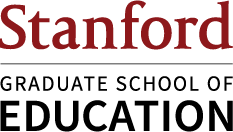Award Winners
The descriptions below provide information about the projects funded for the 2015-16 academic year.
Understanding Empowering Education Group

The Understanding Empowering Education (UEE) group will bring together Ph.D., master’s, and undergraduate students to explore the different approaches that provide empowering education. Empowering approaches include Complex Instruction, Culturally Relevant Pedagogy, Dialogic Literacy, Design Thinking, Montessori, Waldorf, Identity Safe Classrooms, Flourishing Schools, etc. Intellectual goals include understanding the range of approaches that have been developed, as well as investigating whether there are common threads or principles that underlie all of the different approaches.
SWAYWO? Student Conference 2016

SWAYWO (“So, What Are You Working On?”) student conference is a one-day event, similar in structure to a regional or national conference. The morning will start with a kick-off breakfast with the Dean (we hope!). Concurrent sessions during the day will be in poster, single paper, symposia, and workshop formats. There will be a keynote luncheon (speaker TBD) at mid-day. The event will end with a networking mixer.
TEAM: K.C. Busch, Catherine Lemmi, Eduardo Muñoz-Muñoz, Holly Pope, and Alyssa Corrigan
New School Models Series

This is a two-part speaker series in which the GSE will host conversations around new school design movements across the local and national region, looking not only at the possibilities that lie ahead, but exploring the roadmap of school innovations that have brought us to this point. In each of two sessions, local leaders in the field will be invited to showcase their model or concept with particular attention paid to a current deep challenge they face or theme of our choosing. Break-out sessions will follow each mini-lecture where questions pertaining to each speaker's concept will be engaged with and work-shopped in greater detail by GSE participants.
Restorative Justice Workshop Series

In order to best meet the needs of our future students, we will learn to implement a Restorative Justice (RJ) approach to classroom management. While RJ can cover a wide array of practices, we hope that a 1.5 to 3-hour workshop will introduce us to the main concepts and leave us with a basic understanding of what teaching through a restorative lense would look like.
Compassion in Education Working Group

GSE students interested in matters pertaining to school wellness (mindfulness, trauma and mental health, social-emotional learning, prosocial education, equity in schools, and others) will be invited into a “working group” with members of Stanford’s Center for Compassion and Altruism Research in Education (CCARE). GSE students will support leaders and practitioners engaged in the field to uncover how the cultivation of compassion is the foundation and pathway for healthy school systems and society. Members of The Mind and Life Institute and The Berkeley Center for Greater Good will also be in attendance.
SchoolsOUT

SchoolsOUT, one of the student clubs at the GSE, serves the LGBTQQIAAP community. It will provide a safe space for affiliated students, faculty, and staff to build community. The goals include: 1. Creating a network among the LGBTQQIAAP community members; 2. Engaging the GSE in dialogue about gender and sexuality; and 3. Supporting LGBTQQIAAP Bay Area youth via community service.
RREG: Race, Religion, and Ethnicity Group


The RREG will provide a space for GSE students researching issues of race, ethnicity and/or religion to collaborate, and learn from one another. All students within the GSE are welcome to attend the workshop. Education research from a range of disciplines will be accepted. Students will present at RREG if they are seeking feedback, collaborators, resources and more. With this group encouraging a community and serving as a resource, the GSE will come one step closer to building and sustaining diversity within our scholarly community.
"Methodology Crash Course" Workshops

Methodology courses are intended to play a key role in the growth of students at the GSE. It is one thing to learn how to run a regression or write an interview protocol as an abstract, intellectual exercise; it is quite another to perform these tasks in the real world. The “Methodology Crash Course Lunch” Workshops addressing quantitative and qualitative methodologies will cover key topics of interest as well as general tips or tricks contributed by other knowledgeable students.
GSE Partnerships Program

The GSE Partnerships program is a peer mentorship model designed to empower students to help each other navigate the “hidden curriculum” of the GSE. Through these interactions with advanced doctoral students, we learn how our classmates and colleagues have “managed ambiguity” at different stages in their graduate careers. How does a first-year PhD student learn to navigate relationships with professors and advisors? How does a master’s student decide whether doctoral studies are right for them? Who can a graduate student turn to for advice about classes, research, or work-life balance?
Supporting and Sustaining the SFUSD-GSE Partnership: A Day of Collaboration


The San Francisco Unified School District (SFUSD) and the Stanford Graduate School of Education (GSE) are part of a robust partnership that exemplifies the mutually beneficial progress that can be made through strong district-university relationships. This is a day-long meeting to bring together SFUSD administrators, GSE faculty, and GSE students to collectively reflect on the successes of the past while generating ideas for the future. The goal would be to help sustain the partnership between SFUSD and the GSE by collaborating to interpret the implications of past/ongoing research and to begin developing future projects.
